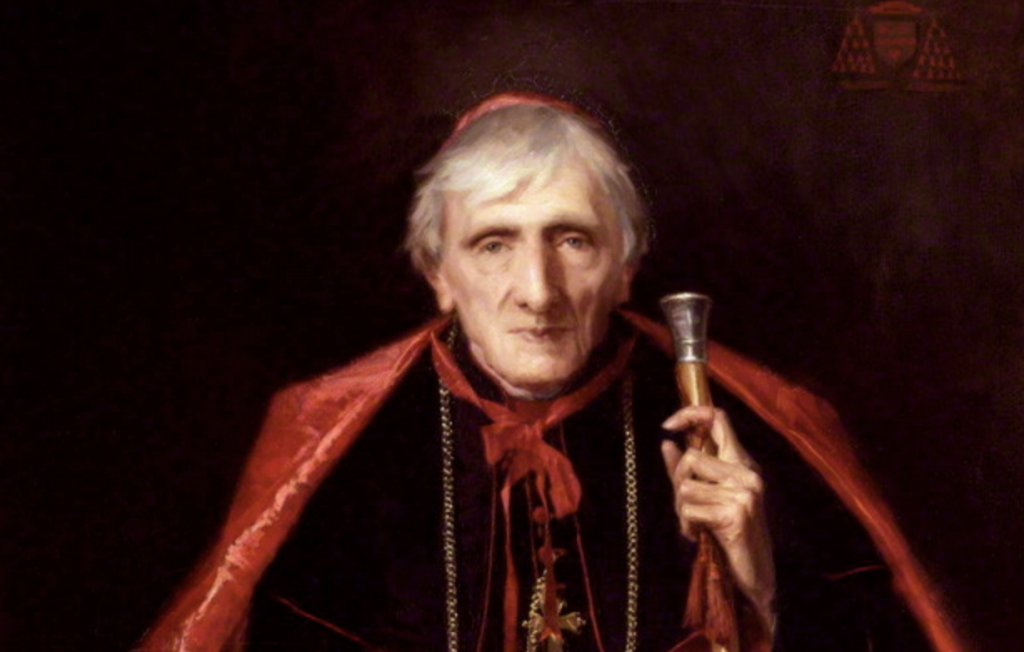St. John Henry Newman was born in London, England, on February 21, 1801. He was the oldest of six children. After studying at Trinity College in Oxford, John was made a fellow of Oriel College, vice principal of Alban Hall, and then vicar of the university church St. Mary the Virgin.
John became a High Churchman, and when the Oxford movement began, he was its organizer and intellectual leader. The Oxford movement stressed the Catholic elements in the English religious tradition. Newman contributed 24 tracts and several influential books.
After much historical research, John began to suspect that the Roman Catholic Church was closest in continuity with the Church that Jesus established. In 1845, he converted and was received into full communion as a Catholic. Two years later, he was ordained a priest. He joined the Congregation of the Oratory, founded three centuries earlier, by St. Philip Neri.
In England, John opened Oratory houses in Birmingham and London. For seven years, he served as the rector of the Catholic University of Ireland.
John wrote 40 books and 21,000 letters that survive today. Before him, Catholic theology tended to draw deductions from first principles, but John’s work brought forth a key part of theological reflection and writing: the experience of believers.
In 1879, John was named a cardinal. He took as his motto “Cor ad cor loquitur” (“heart speaks to heart”). He was cardinal for 11 years, dying in 1890. He was buried at Rednal.
John Newman’s grave was exhumed in 2008, and a new tomb was prepared for him at the Oratory church in Birmingham.
Three years after his death, a Newman Club for Catholic students was started at the University of Pennsylvania in Philadelphia. Now, ministry centers with his name operate at private and public colleges across the United States.
John Henry Newman was beatified in 2010, and canonized by Pope Francis in October 2019.

